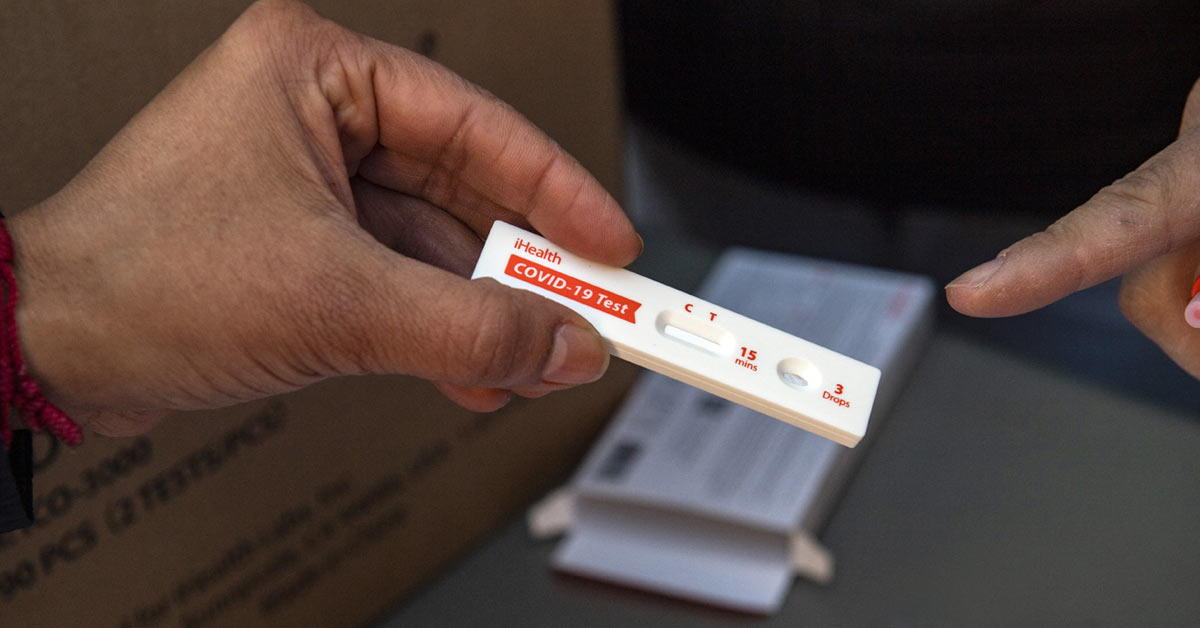Rapid COVID home tests are more likely to give a false negative with the heavily-mutated Omicron variant compared to earlier strains, the US Food and Drug Administration (FDA) said Tuesday.
The news comes as the country is facing a massive surge in cases that experts say is being under-captured as a result of a testing crunch, with long wait times for the more accurate PCR tests, and home kits in extremely short supply.
In a statement, the FDA said it was collaborating with the National Institutes of Health (NIH) to study the performance of home tests, also known as "antigen" tests, against patient samples containing live versions of the Omicron variant.
"Early data suggests that antigen tests do detect the Omicron variant but may have reduced sensitivity," the agency said.
Sensitivity is a measure of how likely a test is able to detect a positive.
Previous testing had focused on heat-inactivated virus samples, rather than live virus which is better, and a drop-off in performance hadn't been spotted until now, the statement added.
The FDA said it would continue to authorize the use of antigen tests - which work by detecting surface proteins of the coronavirus - and that individuals should continue to use them in accordance with the instructions.
For instance, some rapid tests instruct users to take two tests, a certain amount of time apart, in order to confirm a negative.
If a person tests negative with a rapid test but is thought likely to have COVID, either because of symptoms or their exposures, they are still recommended to get a "gold standard" molecular test - such as PCR.
These detect the genetic material of the virus. They are more accurate because they can make millions of copies of the virus' RNA, so even tiny amounts become detectable.
